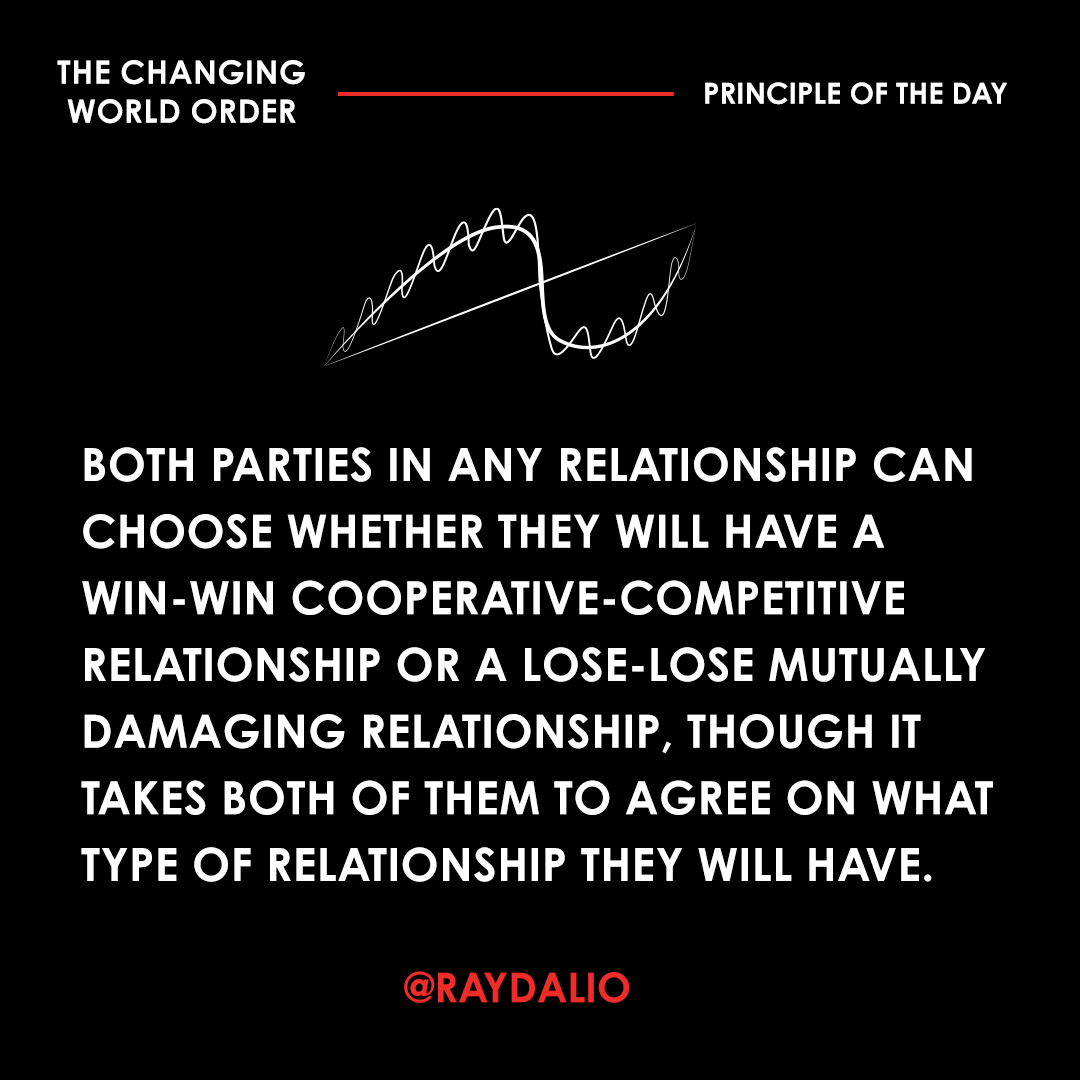
For example, bringing one’s finances to the point that one’s spending is greater than one’s earnings and one’s assets are greater than one’s liabilities can only be reversed by either working harder or consuming less, which is not easily done. (1/4) 

Still, this cycle needn’t transpire this way if those in their rich and powerful stages stay productive and safe by continuing to work hard and smart, earn more than they spend, save a lot, and make the system work well for most of the population. (2/4)
A number of empires and dynasties have sustained themselves for hundreds of years and the United States, at 244 years old, has proven itself to be one of the most durable now in existence. (3/4)
I think the most important question is how we adapt and change by asking ourselves and honestly answering some difficult questions. To read more, see: linkedin.com/pulse/big-cycl… #thechangingworldorder (4/4)
• • •
Missing some Tweet in this thread? You can try to
force a refresh








